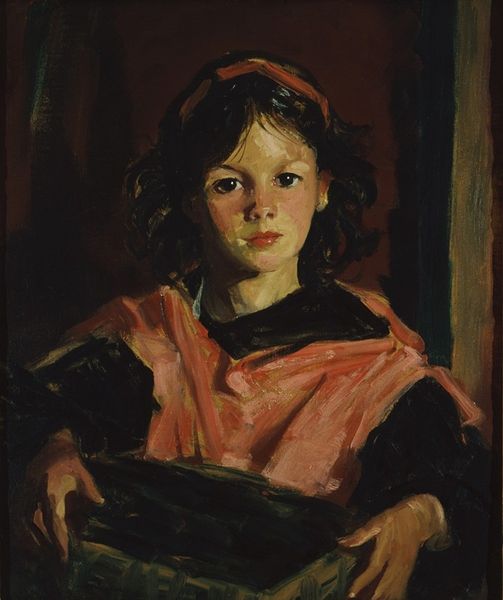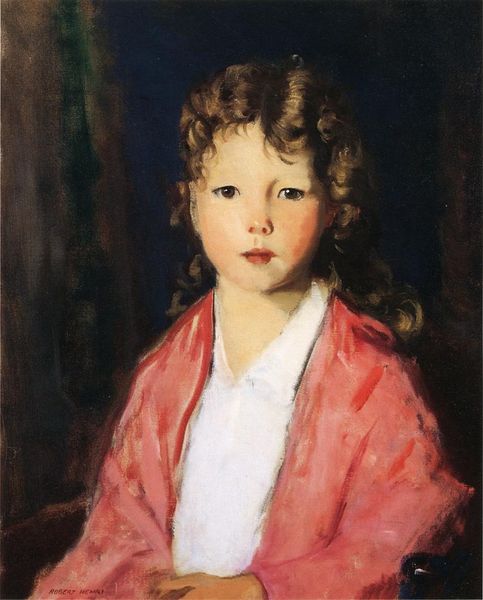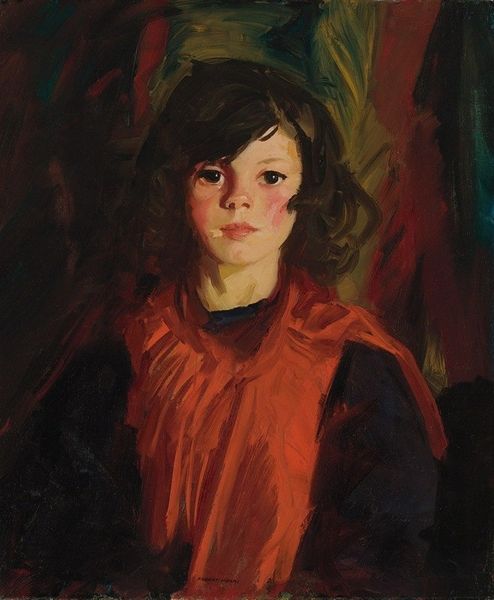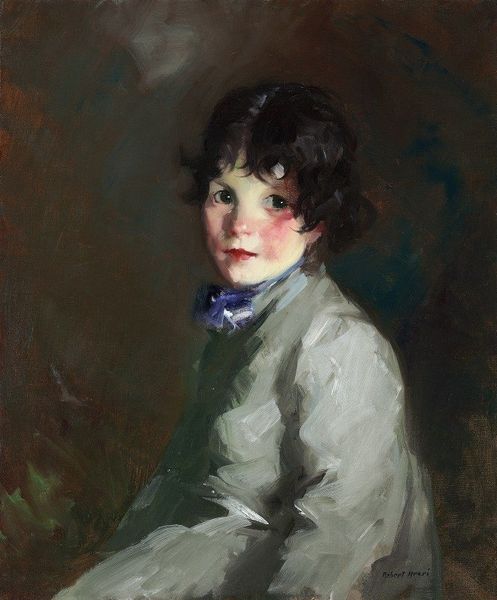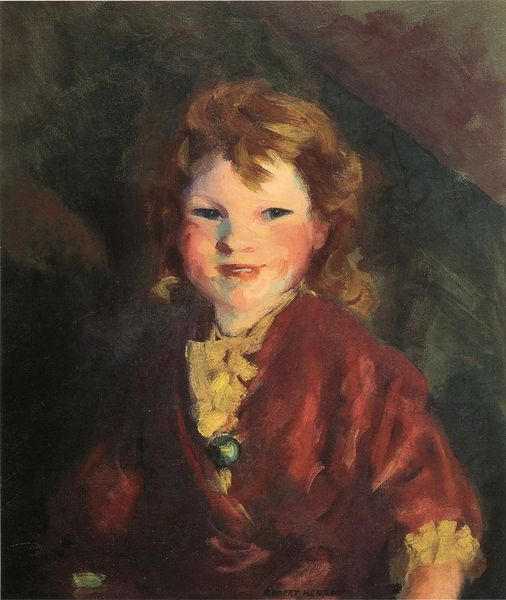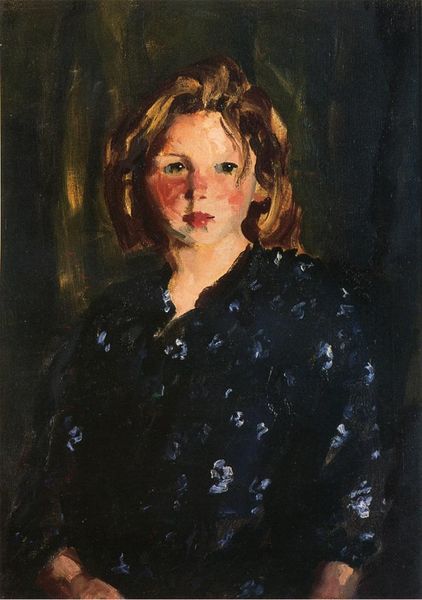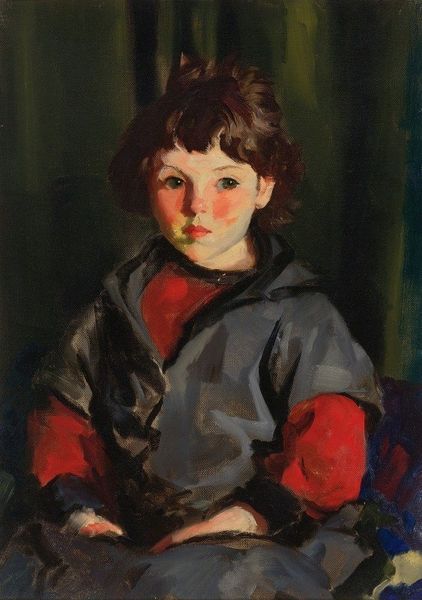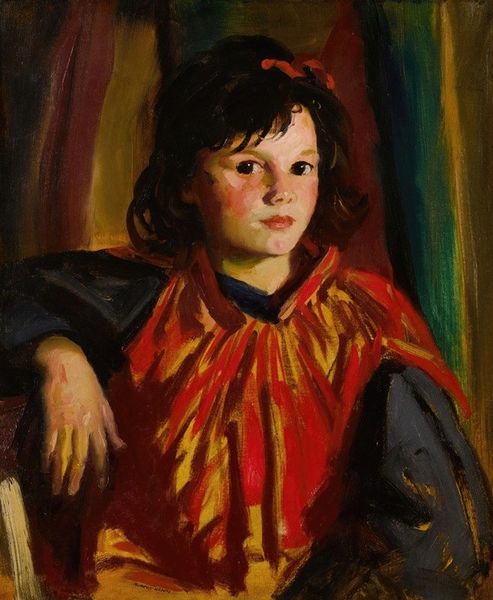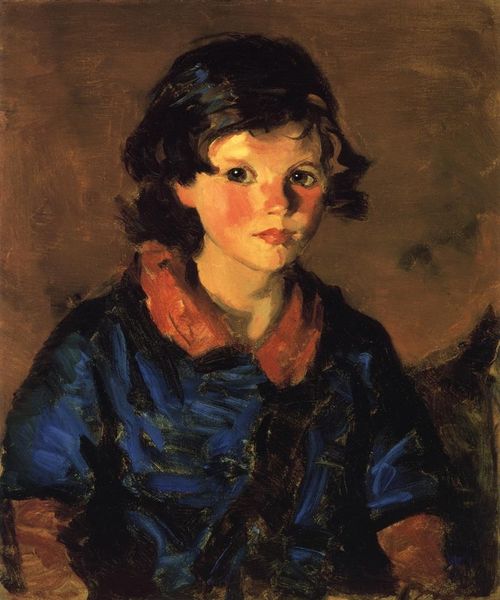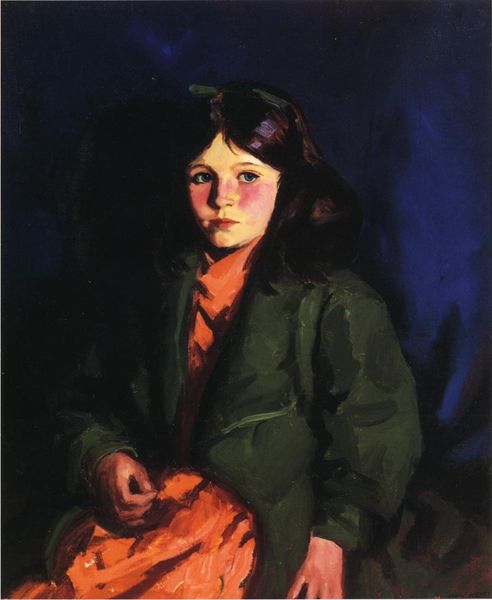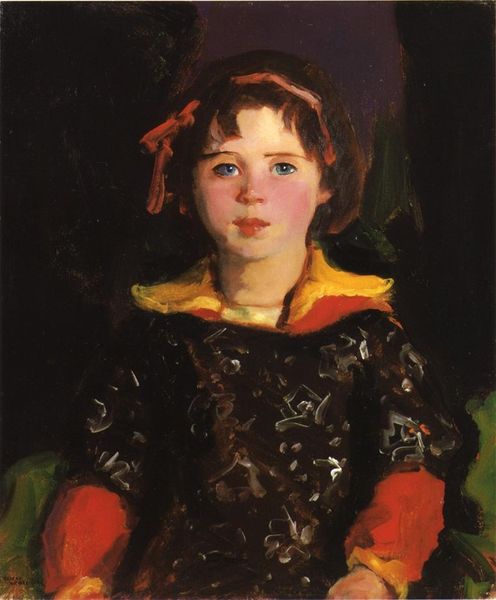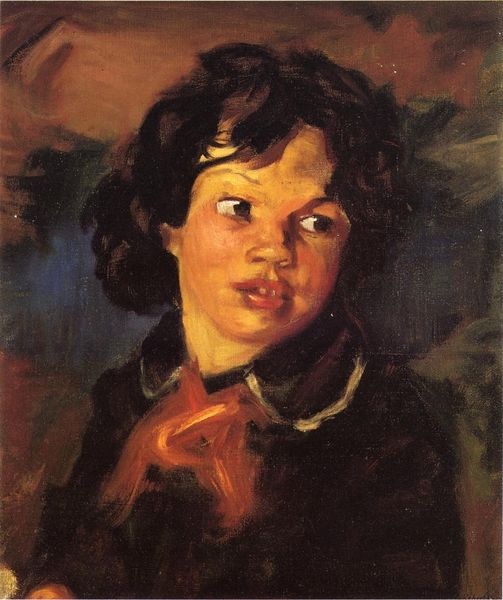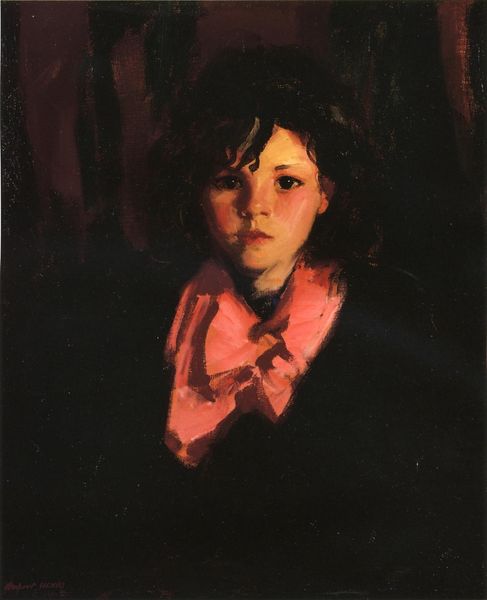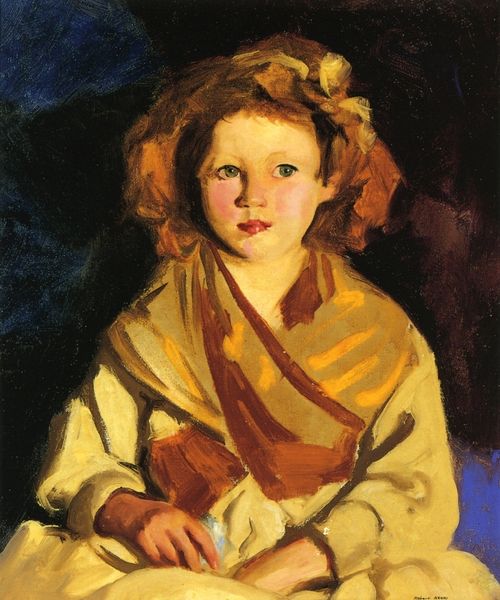
painting, oil-paint
#
portrait
#
painting
#
oil-paint
#
oil painting
#
ashcan-school
#
realism
Copyright: Public Domain: Artvee
Editor: So, here we have Robert Henri’s "Annie Beg" from 1925, rendered in oil paint. I’m really drawn to the contrast between the dark background and the warmth in Annie's face. It gives the portrait a sense of intimacy. What do you see in this piece? Curator: I see a deliberate construction of identity through visual symbols. The dark clothing could symbolize a subdued spirit or a specific social role, consider the painting's date. Do you feel any emotional connection between Annie's necklace and her state of mind? Editor: Interesting point! I hadn't considered the necklace beyond its aesthetic appeal. It seems to draw my eyes to her, to suggest that this image tries to speak about the beauty she sees in the world. But can it do both: conceal and reveal? Curator: Exactly! And consider what such pieces mean to you in the current social atmosphere; does this image trigger cultural memory or offer comfort? How does her gaze play into our modern understanding of representation? Does the visual language create continuity or does it trigger memories that you did not live through? Editor: I guess the idea of representation resonates strongly now. It makes you wonder if Annie had agency in how she was presented or if it was entirely Henri's vision. Considering the cultural context might reveal a deeper connection between Annie's life and her image. Curator: Precisely. Understanding those embedded symbols is the key to unlock new interpretations and allow us to reflect upon our cultural assumptions. Editor: It definitely gives me a lot to think about regarding the layers of meaning within a single portrait. Curator: Indeed. This piece acts as a window into understanding individual as well as societal expressions through art, prompting self-reflection as well.
Comments
No comments
Be the first to comment and join the conversation on the ultimate creative platform.
